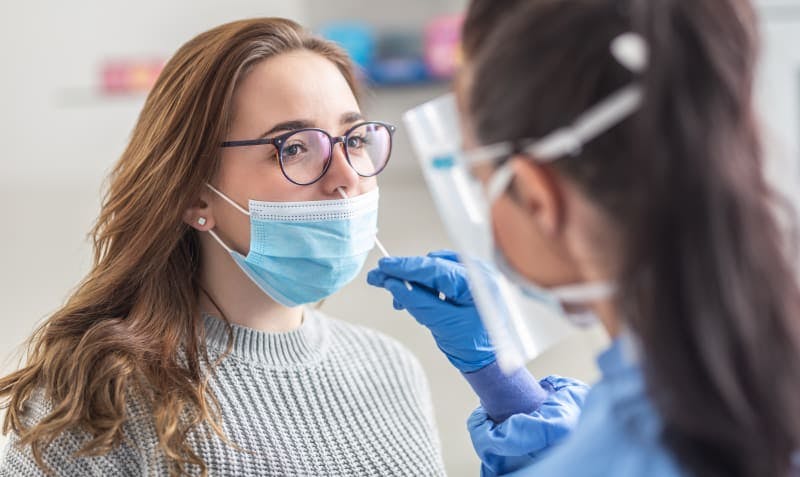Antigen and Antibodies – you’ve heard those before. But what do they really mean and how do they work? This blog explains these concepts in a simple and jargon-free way.
Written by
Dr Adam Abbs
Doctor
Reviewed by
Dr Zubair Ahmed
Doctor
Last Updated:
Guide contents
01What is an Antigen?
What is an Antigen?
An antigen is any substance that can trigger the body to fight against it in the form of an immune response. Antigens are often external foreign substances such as viruses, bacteria and allergens, which, on entering the body, can impact one’s health. Sometimes, antigens can be self-antigens when the body attacks its own cells and is a sign of an autoimmune condition.
What is an Antibody?
If an illness-causing antigen enters the body, the body’s protective white blood cells are activated to produce specialised proteins called Antibodies. These antibodies target the specific antigen and circulate in the blood to identify, bind with and kill it to reduce infection. Even after the antigen is removed, antibodies can continue to circulate in the body for many months to provide extended immunity.
Antigen vs Antibody - the key difference
How are antigens and antibodies used in vaccinations?
Vaccines are developed to teach the body how to create an immune response by imitating a specific antigen without causing illness. Vaccines work by containing weakened or inactive parts of the antigen or a genetic blueprint of the antigen, which on entering the body, is treated as if it were a naturally occurring antigen.
The antibodies that are produced discard the vaccine ingredients as part of the primary immune response and circulate in the blood as memory cells for many months after the antigen is killed. If a vaccinated person is infected by the same antigen, the memory cells produce antibodies faster and more effectively as part of the secondary immune response and the antigen is eliminated quicker than if they weren’t vaccinated. This provides better and stronger immunity to the vaccinated person.
How do popular covid vaccines work?
As of the 1st of Nov 2021, the three covid-19 vaccines currently approved for use in the UK are: Moderna, Oxford/AstraZeneca and Pfizer/BioNTech vaccine.
The Pfizer/BioNTech and Moderna vaccines are messenger RNA (mRNA) vaccines, which on administration, instruct the body to produce a harmless piece of ‘spike protein’ that is found on the surface of the covid-19 virus. The mRNA is broken down and the body’s immune system reacts to the spike protein as if it were a covid antigen to stimulate antibody production and stronger immunity on possible future exposure to the virus.
The AstraZeneca vaccine is a vector vaccine in which a harmless virus delivers the gene for the covid-19 spike protein to the body. When injected, the cells recognise the covid antigen and produce antibodies that provide sustained immunity against the virus.
What’s the difference between a covid antigen, molecular and antibody test?
There are three main types of testing available for Covid-19 testing:
Covid antigen test:
The covid antigen test measures the presence of the viral antigen proteins. A common covid antigen test is the lateral flow antigen covid test in which a long cotton swab is used to collect mucus from the nose and throat. It is used to diagnose an active infection at its peak.
Molecular test:
A molecular test, like the antigen test, measures the presence of covid antigen proteins. A common test is the PCR test which detects an active infection with greater sensitivity than a covid antigen test and is now required for travellers returning to the UK.
Covid antibody test:
The covid antibody test measures the presence of antibodies in the blood in response to Covid-19. These are collected by drawing blood from the arm or using a finger stick. Depending on which type of antibodies are measured, they are used to determine past infection and not to diagnose an active infection.
So, how does it work?
Book in seconds
Select a day and time that suits you — then see a doctor on your phone or at a pharmacy.
Speak to a doctor
Have a video consultation and be examined by one of our expert doctors.
Get back to feeling better
Whether it’s a diagnosis, personalised treatment plan or prescription — our doctors can help.
